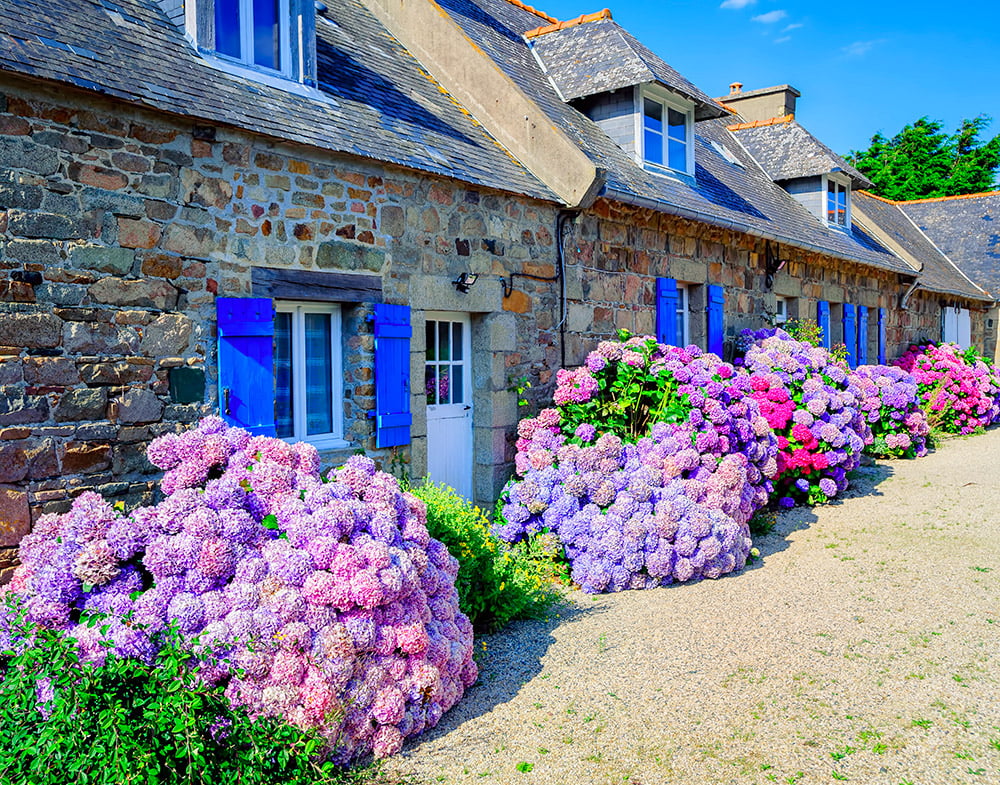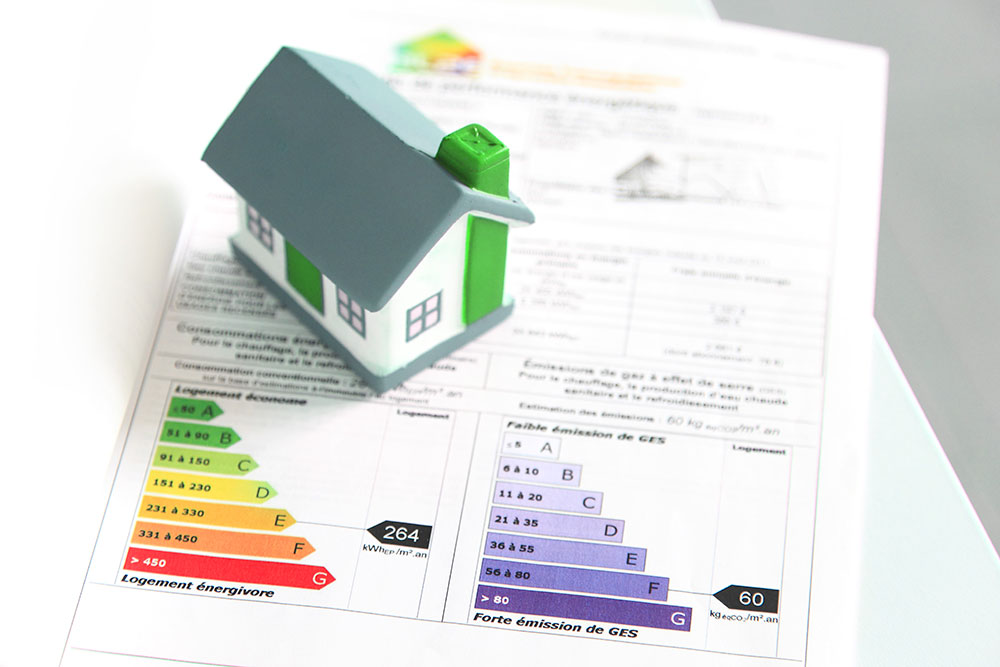All you need to know about energy renovations: why, for whom, how?
Why are energy renovations of homes so important? What energy renovation aids are available and for whom (French residents only)? What energy improvements can be made and when should they be done? We explain it all for you.

- What is it important to perform energy renovations?
- The energy audit, the starting point for effective energy renovations.
- What energy improvements can be made and when should they be done?
- For what aid are you eligible for your energy renovations?
- Who can benefit from aid for energy renovations to buildings?
Energy improvements will greatly enhance your comfort and well-being. What’s more, there is a variety of aid available that can significantly reduce the bill.
Why is it important to perform energy renovations?
Here are three good reasons to perform energy renovations without waiting any longer.
Reduce your energy bills
Electric heating is the biggest energy consumer in all-electric homes. In 2020, it accounted for over 50% of the electricity consumption(1) of French households using this energy for heating.
Since then, global tensions in the energy markets, in the wake of the COVID-19 crisis and the conflict in Ukraine, have led to a sharp rise in energy prices. To enable households to continue paying their energy bills, the rate shield introduced by the government in 2021 has been extended until at least 30 June 2023. In practical terms, the measure means that bills for households that use electrical heating will increase by around 20€ per month, instead of 180€ without the rate shield(2).
That’s why, whether you install a more efficient heating system (a condensing boiler or heat pump, for example), insulate your attic or walls, or replace your windows, energy renovations can generate substantial savings.
Improve the comfort of your home
Good insulation will protect you from draughts, floors and walls that are cold to the touch in winter, as well as damp problems. It should also increase the temperature felt in your home by around 2.5°C(3).
Do your bit for the environment while increasing the value of your home
By carrying out energy improvements, you can reduce the emissions generated by your home. It’s good for the planet, but it’s also a real plus if you sell your home: when buying a property, many buyers include its energy classification in their selection criteria.
The energy audit, the starting point for effective energy renovations.
Performing an energy audit will provide you with an accurate assessment of your home’s energy consumption and a clear picture of the work needed to improve it.
Concretely, an energy audit is an inspection of your home by an RGE environmentally certified professional who, after analysis, will suggest improvement solutions tailored to your situation. These will both reduce your energy bills and improve your thermal comfort.
How can I find an RGE environmentally certified professional for an energy audit?
Visit the “J'écorénove mon logement” website where you will find a directory of RGE environmentally certified contractors.
How much does an energy audit cost?
The average cost of an energy audit is between 500€ and 1000€(4). This cost can be covered – in part or in full – by MaPrimeRénov’, an aid offered by the State.
The amounts of this aid are:
- 500€ for very low-income households;
- 400€ for low-income households;
- 300€ for intermediate-income households.
To enable you to determine which bracket you are in, resource ceilings are regularly set. They vary depending on the location of the dwelling, the composition of the household and income.
What energy improvements can be made and when should they be done?

Insulation work (walls, floors, attics, windows), heating work (changing a boiler, installing a heat pump) and ventilation work (installing a controlled mechanical ventilation system) can be financed by one or more energy renovation aids.
Ideally, if you’re planning to buy a home, it’s a good idea to get an estimate of the cost of energy renovations so it can be included in your home loan (French residents only).
If you’re planning to carry out energy work in a home you already live in, opt for the months of the year when the weather is best because days are longer and rain (which is a particular problem for roofing work) is less frequent.
Similarly, changing your windows during the summer or in spring/autumn will avoid having a cold house during the duration of the work. Installing a new boiler is also much easier when the heating is turned off.
For what aid are you eligible for your energy renovations?
To put an end to the problem of “heat sieves” and, more broadly, of poorly insulated housing, the Energy and Climate Act introduced a series of measures to assist the French in carrying out energy renovations to their primary or secondary residences.
Below are some examples of the main types of assistance available, subject to certain conditions:
- MaPrimeRénov'. Available to all property owners, regardless of income, whether occupants or landlords. It applies only to principal residences over 15 years old.
- MaPrimeRénov’ Sérénité replaces the “Habiter Mieux” programme of the French National Housing Agency (ANAH). It applies only to primary residences over 15 years old and is specifically aimed at low-income and very low-income households. Note that since 1 February 2023, the MaPrimeRénov Sérénité ceilings were raised from 30 000€ to 35 000€ to assist a larger number of low-income households with their extensive renovation projects.
- The “Energy performance improvements loan” from Action Logement. Households wishing to undertake energy renovations can also apply for Action Logement’s “Energy Performance Improvements Loan”. This is a 10-year low-interest loan of up to 10 000€ to help you finance energy renovations to your home. It is available to:
1. Employees in the non-agricultural private sector who work for companies with at least 10 employees;
2. Property owners, whether landlords or occupants;
3. Dwellings in France used as a primary residence.
The work must be eligible for an interest-free eco-loan (Eco-PTZ) - French residents only.
You may also be entitled to the bonuses granted under the Energy Saving Certificates (CEE) and energy cheques schemes.
Aid is also available locally, such as the bonuses granted by the Energy Regulatory Commission in Corsica and in the overseas departments and territories.
Finally, if you are a social housing landlord, you are eligible for social housing eco-loans (éco-PLS), energy savings certificates, a reduction in the property tax on developed properties, and a reduced VAT rate.
Further reading: All you need to know about energy renovation aids.
Who can benefit from aid for energy renovations to buildings?
If you are a property owner, whether a lessor or an occupant, and regardless of your income, the nature of the work you are planning and where it will be carried out (your primary or secondary residence, or a dwelling you rent out), you are eligible for one or more types of aid. Their amount of this aid is usually calculated on the basis of your household’s reference taxable income.
Are you a tenant? You may also be eligible for aid to carry out certain energy improvements, such as the “energy” bonus or the “Heating Helping Hand” bonus, which can be used to finance the installation of an energy efficient biomass boiler, a very energy efficient wood-burning heating system, a heat pump (air/water, water/water or hybrid), a combined solar system or the connection to a heat network powered by renewable energies.
Some regions also offer aid to finance your energy renovations.
The National Agency for Housing Information (ANIL) provides a tool that lists the aid available throughout France.
We hope that this article helped you!
(1) Source: M-HABITAT
(2) Source: https://www.service-public.fr/particuliers/actualites/A15944
(3) Source: What energy
(4) Source: Effy
Copyright Uni-médias. Last updated: March 2023.
Article for information and advertising purposes. The information in this article is provided for information purposes only and Crédit Agricole declines all liability in connection therewith. It is in no way intended to replace the reader’s own knowledge and expertise. You are strongly recommended to seek professional advice.
First published: December 2023.
Image used are provided by Getty Images/iStock